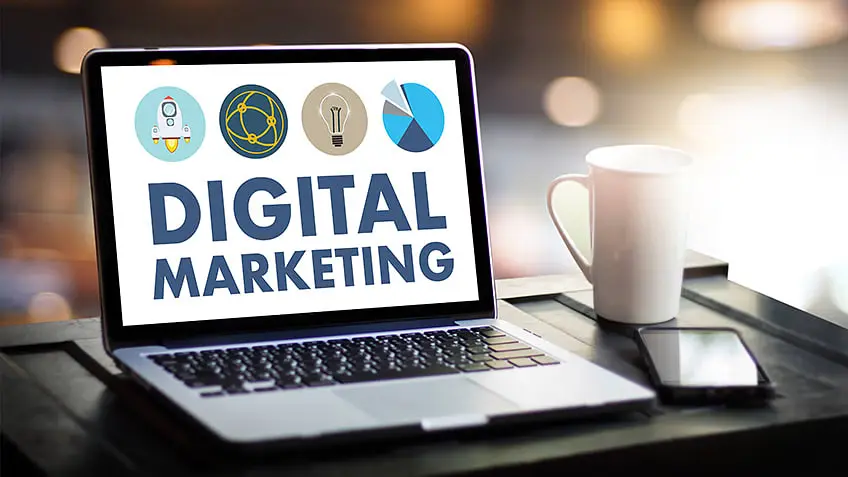Introduction
In today’s fast-paced digital world, the realm of marketing has undergone a transformative shift, moving from traditional methods to dynamic, digital strategies. For entrepreneurs and business owners, understanding and leveraging the power of digital marketing has become not just beneficial but essential for survival and growth. This article delves into the various facets of digital marketing, from building a robust online presence to mastering the art of social media, and demonstrates how these tools can elevate a brand, drive sales, and solidify a customer base. Through real-world examples and expert insights, we’ll explore how you can harness the potential of digital marketing to take your business to new heights.
Understanding Digital Marketing
At its core, digital marketing encompasses a vast array of strategies aimed at establishing a strong online presence and connecting with audiences through digital channels. It includes search engine optimization (SEO), which ensures your website is discoverable by search engines; content marketing, the art of storytelling to engage customers; social media marketing, a tool for connecting and interacting with your audience; pay-per-click (PPC) advertising for targeted outreach; and email marketing for direct communication. Each of these components plays a unique role in a holistic digital marketing strategy, crucial for businesses aiming to thrive in the digital age. For entrepreneurs, understanding and effectively employing these tools is the key to unlocking their business’s full potential in a marketplace that is increasingly moving online.
Developing a Strong Online Presence
A compelling online presence begins with a professional and user-friendly website, which acts as the digital face of your business. It’s not just about aesthetics; it’s about functionality, user experience, and the ability to convert visitors into customers. Consider the story of a boutique clothing store that transformed its online presence. Initially, their website was cluttered and difficult to navigate. After a complete redesign focusing on a clean layout, intuitive navigation, and high-quality product images, the store experienced a significant increase in online sales and customer engagement. This transformation highlights the direct impact a well-designed website can have on a business’s success.
Leveraging Social Media for Business Growth
Social media platforms offer a powerful avenue for businesses to connect with their audience, build brand loyalty, and even drive sales. Successful social media marketing involves not just regular posting, but creating content that resonates with and engages your audience. A notable example is a small artisan coffee shop that utilized Instagram to showcase their unique latte art and cozy ambiance. Through consistent, visually appealing posts and engaging with their followers, they significantly increased their customer base and became a popular local hotspot. This case illustrates how effectively leveraging social media can transform a small business’s reach and brand perception.
Content Marketing: Telling Your Brand’s Story
Content marketing is about telling your brand’s story in a way that captivates and engages your audience, providing value beyond just selling a product or service. It’s an opportunity to establish your brand as a thought leader in your industry. A tech startup, for instance, utilized a blog to share insights on emerging industry trends and practical tips for users. This approach not only attracted a significant following but also positioned the company as an authority in its field. Through content marketing, they were able to build trust with their audience, ultimately leading to increased brand loyalty and customer base.
SEO: Getting Found Online
Search Engine Optimization (SEO) is crucial for ensuring your website appears prominently in search results, bringing organic traffic to your site. A local bookstore provides a perfect case in point. Initially, their online presence was minimal. After implementing a targeted SEO strategy, focusing on keyword optimization and quality content, their site began to rank higher in search results. This led to a noticeable increase in organic traffic and, subsequently, online sales. Their experience demonstrates the transformative impact that a well-executed SEO strategy can have on a business’s visibility and success in the digital landscape.
Email Marketing: Connecting with Your Audience
Email marketing remains a powerful tool for building and maintaining customer relationships. It allows for direct and personalized communication with your audience. A compelling example is a boutique that started a monthly newsletter featuring new arrivals, style tips, and exclusive offers. This approach not only kept their customers informed but also created a sense of community. Over time, they noticed an uptick in repeat customers and increased engagement at their events, a testament to the effectiveness of a well-crafted email marketing strategy in fostering long-term customer relationships and driving business growth.
Pay-Per-Click Advertising: Maximizing ROI
Pay-Per-Click (PPC) advertising is a model where businesses can display ads and only pay when they are clicked. It’s an effective way to drive targeted traffic to your site. An e-commerce site specializing in eco-friendly products used PPC to target specific customer demographics interested in sustainability. By carefully selecting keywords and crafting compelling ad copy, they managed to double their conversion rate. This success story illustrates how PPC can be a highly efficient tool for reaching specific audiences and maximizing return on investment when used strategically.
Measuring and Analyzing Your Digital Marketing Efforts
The importance of analytics in digital marketing cannot be overstated. It’s essential for understanding the effectiveness of your strategies and making data-driven decisions. A clothing retailer, for instance, used analytics to track the performance of their online campaigns. By analyzing customer behavior and engagement metrics, they identified which strategies were most effective, leading to a more targeted approach in their future campaigns. This shift not only improved their marketing efficiency but also significantly increased their return on investment. Their experience underscores how critical it is to measure and refine your digital marketing efforts continually.
Adapting to Digital Marketing Trends
Staying ahead in digital marketing means being adaptable to new trends and technologies. It’s about balancing innovation with your core brand values. A home decor business exemplifies this well. They embraced the trend of using augmented reality in their marketing, allowing customers to visualize products in their homes before purchasing. This forward-thinking approach not only set them apart from competitors but also significantly boosted customer engagement and sales. Their success illustrates the importance of evolving with digital trends to enhance customer experience and maintain a competitive edge in the market.
Conclusion
The journey through the world of digital marketing underscores its critical role in the success and growth of a business. From creating a strong online presence to harnessing the power of social media and email marketing, each aspect of digital marketing presents unique opportunities for businesses to connect with their audience, tell their story, and grow their brand. As the digital landscape continues to evolve, so too should your marketing strategies. For entrepreneurs and business owners, the message is clear: invest in digital marketing thoughtfully and continuously adapt to stay ahead. Embrace the digital wave, and watch your business soar to new heights.










